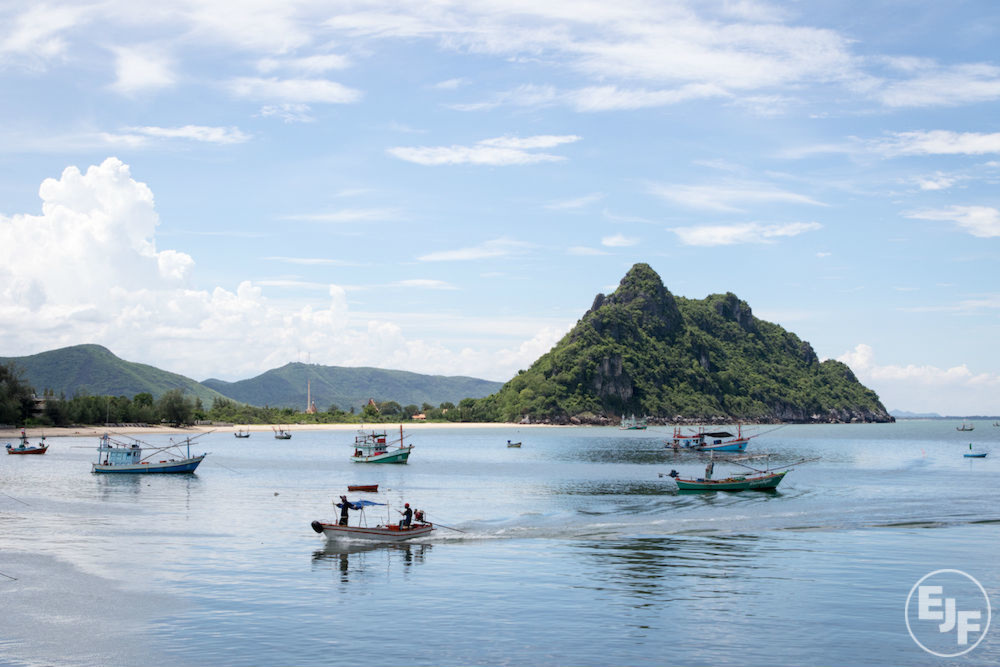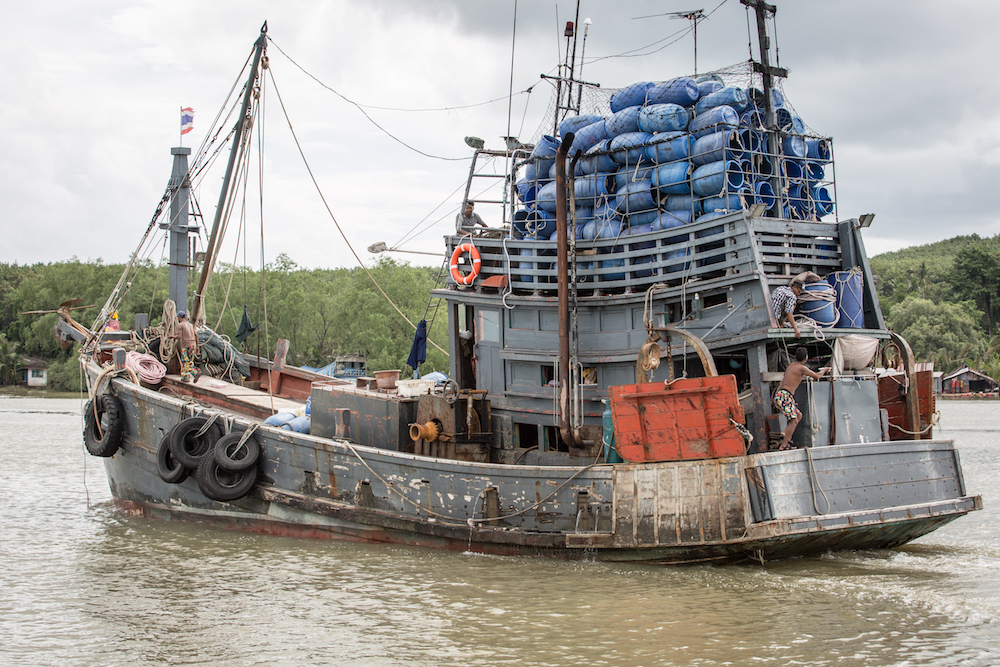
Thailand leads Asia by ratifying international standards for decent work in fisheries
Thailand is set become the first country in Asia to ratify the Work in Fishing Convention C188, which sets basic standards of decent work in the fishing industry. Despite obstructive tactics and attempts to derail the process by some sections of the fisheries industry, Thailand’s National Legislative Assembly voted today to ratify the convention. Without further opposition it should be in place January next year.
The Environmental Justice Foundation (EJF), which has been advising the Thai government on these issues since 2013, applauds this progress and urges Thailand to keep up the momentum for reform, to protect fishers and Thailand’s international reputation.
Thailand’s fishing fleet has, in recent decades, been the scene of slavery, brutal physical abuse, human trafficking, and even murder of vulnerable migrant workers. Failure to act against these criminal operators led to global notoriety for Thailand’s seafood sector, as one of the most abusive and destructive economic sectors in the world.
By setting international standards for decent work in the fishing industry, the International Labour Organisation’s Work in Fishing Convention (C188) is designed to eradicate exactly these types of abuse. Earlier this year, the Royal Thai Government took a progressive and bold move, announcing its intention to ratify this convention before the end of the year.
However, industry representatives such as the National Fisheries Association of Thailand (NFAT) have been using aggressive and disruptive tactics to derail legislative reforms in a bid to avoid any regulation to protect workers across the fishing industry. NFAT has spread discord, disseminated misinformation and generally disrupted efforts toward much-needed reforms. NFAT has also reneged on its previous promises to cooperate with the government to eliminate human and labour rights abuses in the fishing industry.
“The National Legislative Assembly has today taken a bold, progressive and important step towards the protection of workers in the seafood sector from violence and labour abuses. This action is to be applauded, it shows both regional and global leadership by the Royal Thai Government, becoming the first Asian nation to ratify the convention.” said EJF’s Executive Director Steve Trent.
In 2019, Thailand will become chair of the Association of Southeast Asian Nations (ASEAN), providing a unique opportunity to demonstrate further leadership in the region, encouraging neighbouring countries to follow suit.
While the vote by the National Legislative Assembly almost certainly means that the ratification will take place, NFAT may well step up its efforts to prevent it. Now is the time for the Royal Thai Government to defend its principled stance and for the international community to support these actions.
Notes for the editor:
Watch EJF’s investigative film Thailand’s Seafood Slaves and read the report
Images available on request
- EJF has worked in Thailand since 2013 with initial investigations into the shrimp and trash fish industries. Close collaboration with the Royal Thai Government now encompasses work across several agencies including Department of Fisheries, Command Centre for Combatting Illegal Fishing, Ministry of Labour, Department of Labour Protection and Welfare, and Marine Department.
- There are an estimated 4.5 million migrant workers in Thailand with 222,000 workers in the seafood processing sector and approximately 129,000 workers on-board fishing vessels (Thai Ministy of Labour). These workers represent a significant portion of Thailand’s workforce and are operating in one of the most dangerous professions in the world yet are still not granted the same rights as Thai domestic workers.
- Thai seafood exports of 1.4 million tonnes in 2016 were worth $5.8 billion (UN Comtrade).
- Catch per unit effort – a measure of how productive or depleted a fishery is – dropped by 94% in the Gulf of Thailand between 1961 and 2016 and by 69% in the Andaman Sea between 1966 and 2016.
- Thailand has a fleet of a proximately 11,000 commercial fishing vessels (Department of Fisheries, January 2018).
- The Royal Thai Government publicly stated that it would ratify the Work in Fishing Convention (C188) in time for the ILO’s Annual Conference in Geneva in June 2018.
The Environmental Justice Foundation is an international non-governmental organisation working to protect the environment and defend human rights. EJF is a charity registered in England and Wales (1088128). www.ejfoundation.org
Contacts:
Daisy Brickhill - EJF Press & Communications Coordinator
daisy.brickhill@ejfoundation.org
Tel: +44 7871 946 911
SIGN UP FOR OUR EMAILS AND STAY UP TO DATE WITH EJF

